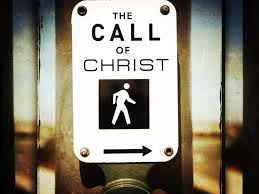The Church exists by what Christ has done for us in and for His Glory!

“The elders which are among you I exhort, who am also an elder, and a witness of the sufferings of Christ, and also a partaker of the glory that shall be revealed: Feed the flock of God which is among you, taking the oversight thereof, not by constraint, but willingly; not for filthy lucre, but of a ready mind; Neither as being lords over God’s heritage, but being examples to the flock. ” I Peter 5:1-3
The 5 questions that the pastor must seek to God and themselves is this:
-
How can I grow and live out the truths of Scripture and God’s will in society?
-
How can I lead the people God brings me with His Word and Fruit?
-
How can I minister effectively to my neighbor in all of life’s situations?
-
What is my role and what are the gifts in my life? How do I please God with them?
-
How do I glorify Christ in all that I do?
If the minister of a church cannot or refuses to be introspective of honestly evaluating what they think their call is and compare it to what Christ has actually called them too, they can’t possibly minister or lead a church effectively! For what we do with our self-directive call is lead by our whims and pride. In the actual call of Christ, we lead as he has called and shown. So, to be an actual Christ honoring gathering and leading His people effectually, we must bow to His Lordship and not the ways of the self, our fallen nature or worse another’s false lead.
The baton has been passed—not the role of head equipper and minister of the Word and Sacraments, but the baton of the responsibility to care and to live out our faith effectively to one another. These are the questions we must all answer diligently with the Word of God, and then follow through with our will to conform. Christianity is no longer a spectator sport; we are not Monday night couch quarterbacks. We are the people of God, called to do His will.
When we start to function as a cohesive group, the local church will be amazing! Your people and even your neighborhood will be amazed at the impact we have and the incredible, increased effectiveness in the building of the Kingdom of God. God’s Word tells us that we have “diversity,” yet in it all, we also have “unity.” We are not to allow the diversity of people’s ideas and feelings to be our focus, but we need to embrace them, train it, and direct it to the call, the goal, and purpose our Lord has for us. We will have a healthy form of codependency in Christ and cooperate with the laity and leadership, filled with encouragement and love. If not? As a pastor and church growth consultant this is what I have seen too much of: Bitterness, strife, and the unhealthy codependency to fads and false flags of leadership that ruins lives instead of building them up will no longer consume the ministry.
We all have different gifts and abilities given to us by the Lord for His purpose and glory. “Doing ministry” means we have pastors and leaders who are growing in Christ, operating in the Faith and Fruit of the Spirit and making decisions based on what the Bible says and what is best for the church and neighborhood. Not, how to I build a legacy for myself, the pastor! Or follow meaningless trends. We are to exercise the gifts that we each have received to accomplish His purpose. And, until the Lord calls us home or comes back, we are to keep plugging and persevering in.
Filed under: Building a Fruitful Church, Leadership Issues, Pastors, Uncategorized | Tagged: glorify Christ, lead the church, meaningless trends, pastor, prepare for ministry, purpose and glory, Questions Pastor Must Ask God, Questions the Pastor Must Ask Themselves, training pastors | 1 Comment »










